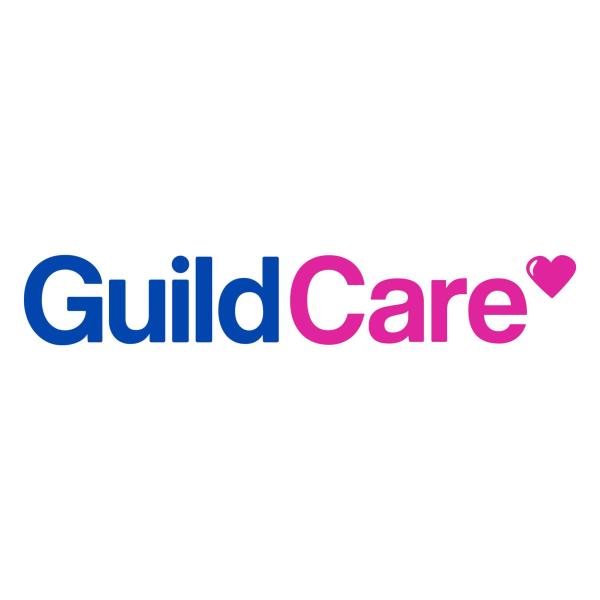Help to Reduce Social Isolation This Month by Voting for Guild Care
Guild Care, Worthing’s leading social care charity, is proud to take part in the My Favourite Voucher Codes charity poll. Each month, MFVC donates 20% of their profits to a good cause – and this month, Guild Care has the chance to win those vital funds. With just a simple click, your vote can help change the lives of older people, people living with dementia, and children and adults with learning disabilities in the Worthing area.

What Does Guild Care Do?
Guild Care provides compassionate, tailored support to some of the community’s most marginalised and vulnerable individuals. Established in 1933, Guild Care has nearly a century of experience offering essential services to older people, those with dementia, and children and adults with learning disabilities.
Driven by its BELIEF values – Brave, Engaging, Loving, Integrity, Everyone Matters, and Free to be Me, Guild Care employs over 600 dedicated staff and volunteers. These values shape everything the charity does, ensuring everyone it supports to feel valued, connected, and accepted for who they are.
What Services Does Guild Care Provide?
Guild Care offers an impressively wide range of services, which support more than 3,000 people and their families every year:
- Day Services and Respite: For older people and those living with dementia, including vital support for carers.
- Learning Disability Services: Community-based day services for children and adults with learning disabilities and complex needs.
- Support at Home: Including domiciliary care and in-home support.
- Residential Care: Three care homes offering round-the-clock nursing care, dementia expertise, and palliative care.
- Information, Advice, and Guidance (IAG): Helping individuals and families navigate the challenges of care and support.
- Community Transport: Free or subsidised transport enabling access to social and healthcare services.
For every £1 invested into Guild Care, the charity generates £5.84 in social value – a testament to its effectiveness and impact.
Who Does Guild Care Help?
Guild Care’s mission is rooted in the belief that everyone deserves to live a full, connected life – no matter their age or ability. The charity provides targeted support to:
- Older People: Worthing’s population is ageing, with 22.3% over the age of 65. Guild Care helps tackle loneliness, which significantly increases the risk of dementia, depression, and hospitalisation.
- People with Dementia: West Worthing has one of the highest dementia rates in the UK. Guild Care supports individuals and their carers through inclusive, enriching day services.
- Children and Adults with Learning Disabilities: Many individuals with disabilities experience severe social isolation. Guild Care provides a safe, stimulating environment where they can grow in confidence and form meaningful relationships.
· Unpaid Carers: Often the silent backbone of care, unpaid carers benefit from Guild Care’s respite services, peer networks, and mental health support.
What Impact Has Guild Care Had?
The results of Guild Care’s support are both profound and measurable. Highlights from recent impact reports include:
- Older People: 100% of users report feeling safer, more confident, and less isolated.
- People with Dementia: 92% report increased social connection; 76% feel happier; and 67% feel more like themselves again.
- Carers: 100% report feeling better supported, with 88% experiencing reduced stress and 71% saying their own happiness has improved.
- People with Learning Disabilities: 100% report increased confidence and self-esteem; 93% of families feel better supported; and 92% of parents see improvements in their own mental health.
How Will the Donation Help Guild Care?
If Guild Care wins the MFVC poll, the donation will help expand essential services for older people, those with dementia, and people with learning disabilities. Funds will support the creation of a new Community Hub and keep the vital community services running.
Common Questions About Guild Care
Who can access Guild Care’s services? Guild Care supports people of all ages with a focus on older adults, individuals with dementia, people with learning disabilities, and unpaid carers. Most services are based in Worthing, but some extend to the wider West Sussex area.
Are Guild Care’s services free?
Some services are free or subsidised, including community transport and group activities. Residential care and some day services may require contributions or are funded via care plans.
Is Guild Care a registered charity?
Yes, Guild Care is a registered charity in England and Wales and has been serving the community since 1933.
How Can I Contact Guild Care?
To learn more about Guild Care’s work, access support, or refer someone for services, visit www.guildcare.org. The team can also be contacted via email at fundraising@guildcare.org.
How Can I Support Guild Care?
The most immediate way to support Guild Care this month is by voting in the My Favourite Voucher Codes charity poll. It’s completely free to vote, and your click could help bring in essential funds for life-changing services.
In addition to voting, individuals can:
- Donate: Every contribution helps Guild Care reach more people in need. Donate via their donation page.
- Fundraise: Host an event, take on a challenge, or partner your business with Guild Care. More information is available at Fundraise For Us | Guild Care.
- Volunteer: From befriending to event support, volunteers play a vital role in Guild Care’s community impact.
- Share: Spread the word about the MFVC charity poll and encourage friends and family to vote.
How Can I Find Out More About Guild Care?
For full details about Guild Care’s services, impact, and how to get involved, visit their official website at www.guildcare.org. You can also follow them on social media for updates, success stories, and upcoming events.
This month, one click could make a world of difference. By voting for Guild Care in the My Favourite Voucher Codes charity poll, you’re helping to support some of Worthing’s most vulnerable residents. Whether it’s reducing loneliness for older adults, offering vital respite for carers, or building confidence in young people with learning disabilities.





